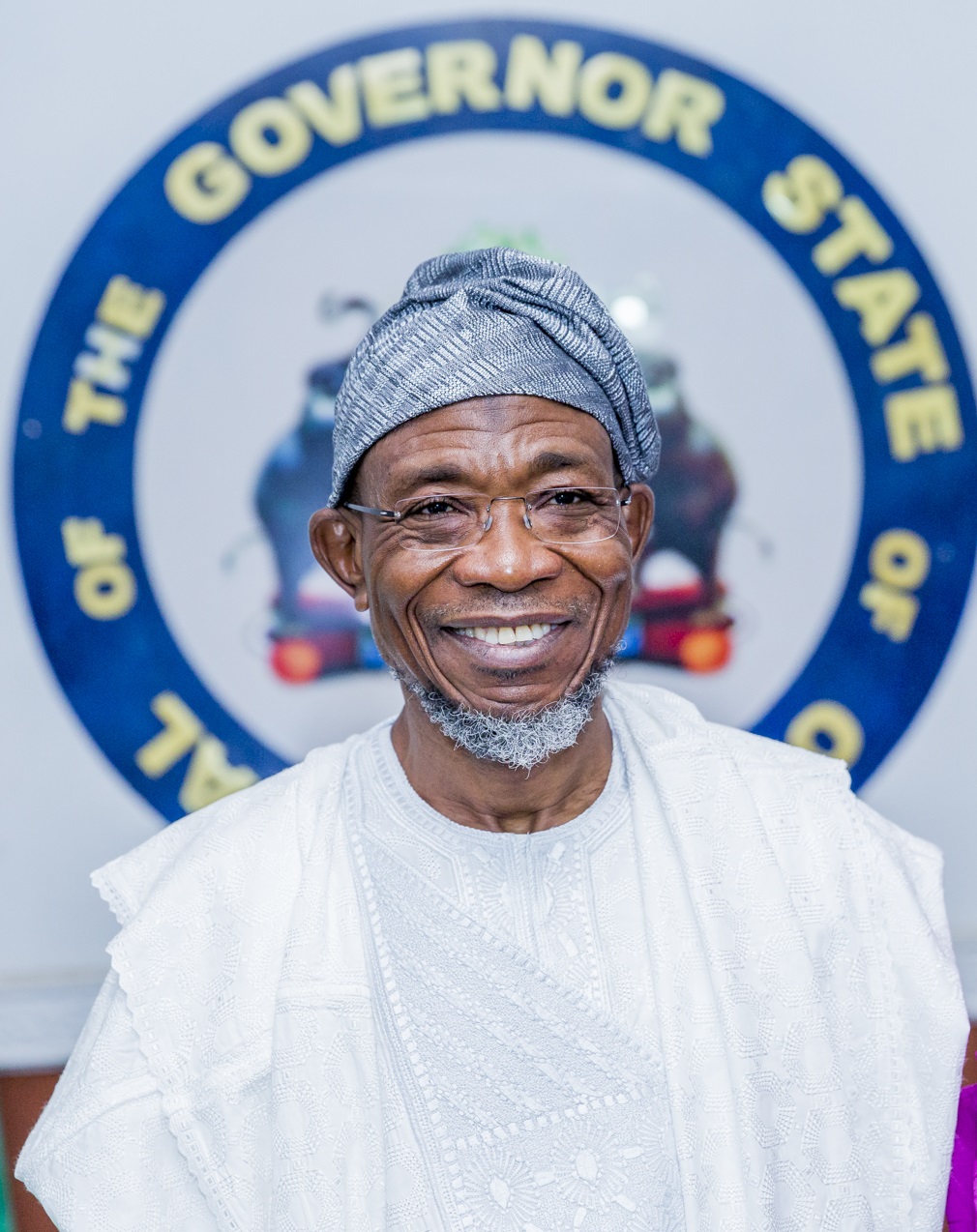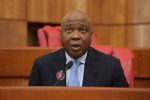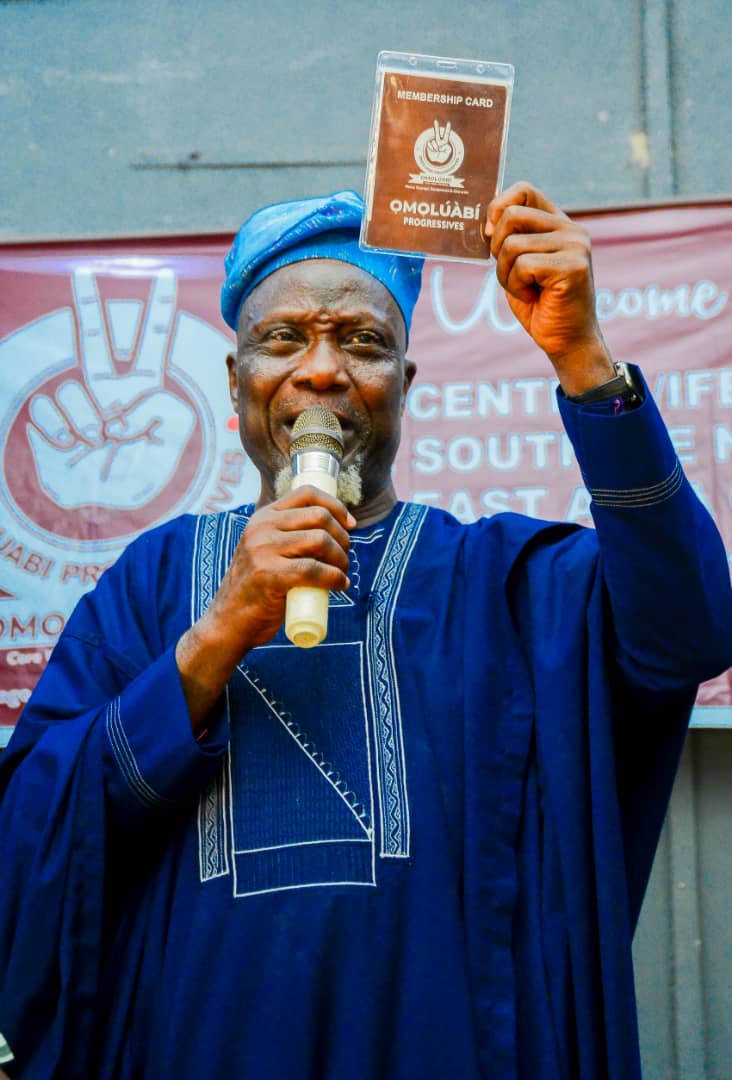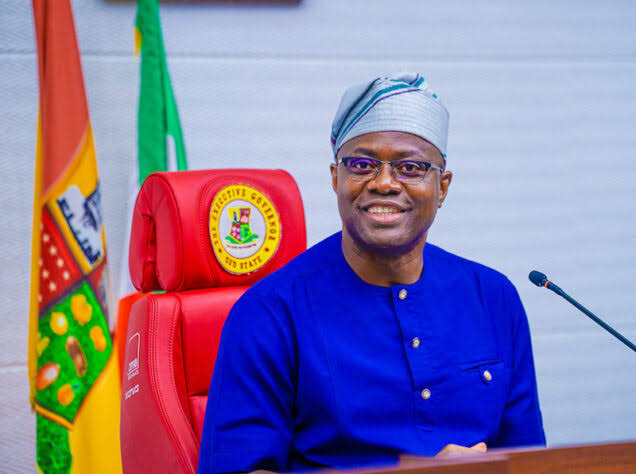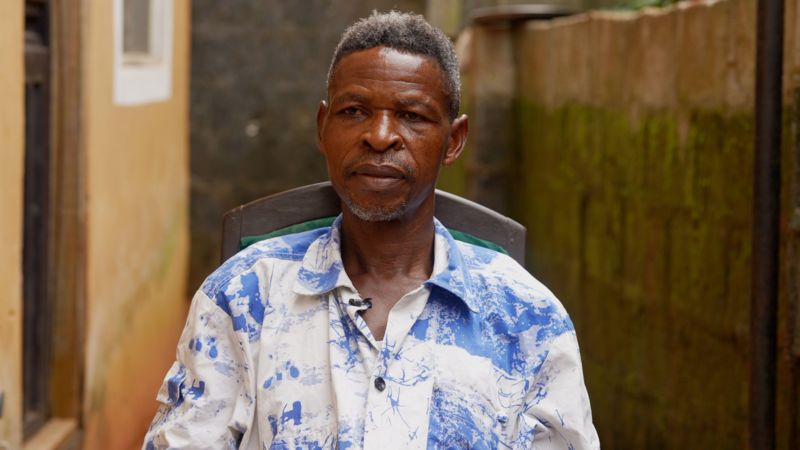Do you know that Ogbeni Rauf Adesoji Aregbesola is a teacher, teaching all of us good lessons with actions? Are you aware that his passion for education and teaching cannot be compared to that of any Governor that had ruled this State, living or dead? Do you know that he had several times mooted the idea of paying teachers wages more handsome than the rest of the workers if it had not fared ill with our economy? Do you know that it would have been right to do so, if we are to be fully internationally compliant with the best practice? Aregbe is always on top for innovations. Yes!
Are you aware that the Education Marshall, a mobile force of dedicated men and women in uniform assisting to curb truancy, indiscipline and cultism in schools is applauded to be the first of such initiatives to curb the menace of ‘out of school children syndrome’? Do you know that all societies yearning for development must love teachers more than the rest of the workforce? Teachers are the engine room of the society. No nation can rise beyond the quality of its teachers. Are you aware that teachers earn more than medical doctors in the United States, Canada and Japan? Yes! That is their secret of getting it right.
Do you know that those politicians criticizing Aregbe’s policy on Education and teachers for creating the positions of Headmaster-General/ Permanent Secretary, Tutor-General/ Permanent Secretary, dividing the State into Education Districts, re-classification of schools, Edu-Marshall, Schools Sports, building of new schools and renovation of existing ones, promoting and giving automatic conversions to officer cadre all graduate teachers and sundry initiatives of this great teacher are doing that, as lawyers would say in court, per incuriam, (simply out of ignorance)? Do you know that Aregbe’s stand-point in education and teaching is grounded in the original philosophy of education as canvassed by Socrates, Plato, Aristotle of Stagira and Jean Jacques Rousseau? (This issue will be trashed out another day). All of us must love education. A corollary of this thesis is that we must love our teachers. If you want to know more about that, come along please.
Do you know that we owe much to our teachers? Do you know that teachers are the only creatures God made in His own image? Yes! Do you know that all of us are just like clay and teachers are potters…. molding us to shape? Are you aware that if not for teachers, many of us could not have amounted to much? That fact dawned on Abraham Lincoln early enough just like it is dawning on Aregbe as the celebrated Governor of our State. Do you know Abraham Lincoln? Have you read the classic letter he wrote to his son’s teacher? Do you know that the letter has created international agenda for the roles of teachers in our world? You care for it? Come along, please. Abraham Lincoln was born on 12th February, 1809 and was assassinated on 15th April 15, 1865. He was an American statesman and lawyer who served as the 16th President of the United States from March 1861 until his assassination in April 1865. Lincoln led the United States through the American Civil War—its bloodiest war and perhaps its greatest moral, constitutional, and political crisis. In doing so, he preserved the Union, abolished slavery, strengthened the federal government, and modernized the economy. He had been rated as the greatest American President, dead or living.
As a statesman. Abraham Lincoln, like Aregbe, valued quality education. Equally, he did not joke with the role that teachers could play in giving quality education and to imbue the pupils with the traction to navigate the pool of life successfully. This Lincolnian belief was further demonstrated in the classic letter he wrote to his son’s teacher, a letter that has provoked a new international agenda for education and teaching in our world. The letter interludes: A Letter From Abraham Lincoln To His Son’s Teacher
“My son starts school today. It is all going to be strange and new to him for a while and I wish you would treat him gently. It is an adventure that might take him across continents. All adventures that probably include wars, tragedy and sorrow. To live this life will require faith, love and courage.
So dear Teacher, will you please take him by his hand and teach him things he will have to know, teaching him – but gently, if you can. Teach him that for every enemy, there is a friend. He will have to know that all men are not just, that all men are not true. But teach him also that for every scoundrel there is a hero, that for every crooked politician, there is a dedicated leader.
Teach him if you can that 10 cents earned is of far more value than a dollar found. In school, teacher, it is far more honorable to fail than to cheat. Teach him to learn how to gracefully lose, and enjoy winning when he does win.
Teach him to be gentle with people, tough with tough people. Steer him away from envy if you can and teach him the secret of quiet laughter. Teach him if you can – how to laugh when he is sad, teach him there is no shame in tears. Teach him there can be glory in failure and despair in success. Teach him to scoff at cynics.
Teach him if you can the wonders of books, but also give time to ponder the extreme mystery of birds in the sky, bees in the sun and flowers on a green hill. Teach him to have faith in his own ideas, even if everyone tells him they are wrong.
Try to give my son the strength not to follow the crowd when everyone else is doing it. Teach him to listen to everyone, but teach him also to filters all that he hears on a screen of truth and take only the good that comes through.
Teach him to sell his talents and brains to the highest bidder but never to put a price tag on his heart and soul. Let him have the courage to be impatient, let him have the patient to be brave. Teach him to have sublime faith in himself, because then he will always have sublime faith in mankind, in God.
This is the order, teacher but see what best you can do. He is such a nice little boy and he is my son”.
The date was October 5. The year was 1966. The UNESCO/ILO Recommendation concerning the Status of Teachers was signed to address the status and situations of teachers around the world. World Teachers’ Day is held annually on October 5 since 1994 to celebrate this UNESCO/ILO Recommendation concerning the Status of Teachers. This Recommendation outlines standards relating to education personnel policy, recruitment, and initial training as well as the continuing education of teachers, their employment, and working conditions. It aims to focus on “appreciating, assessing and improving the educators of the world” and to provide an opportunity to consider issues related to teachers and teaching. It is a day that all of us dedicated to chart a positive cause for education must come together for celebration. The Executive Council must rejoice. The House of Assembly must roll out drums. The Court must be there. The Press must speak. Non-governmental organisations and parents wave white banners without stain …all in salutary positions to honour teachers. This is the international agenda, the dream to grow to civilization. No wonder for 2018, the UNESCO adopted the theme: “The right to education means the right to a qualified teacher.”
And one more thing, please! Do you know that the 2018 edition of ‘Teachers’ Day’ on 5th October, 2018 was to commemorate the 70th anniversary of the Universal Declaration of Human Rights (1948) to serve as a reminder that the right to education cannot be realized without trained and qualified teachers? Do you know that the right to education has been made a universal right for all children in the world under the aegis of Child’s Right Convention? Do you know the importance of the Universal Declaration of Human Rights? You care? Come along!
The 2nd World War was fiendishly fought between 1939 and 1945. During this war, the Allied Forces adopted the Four Freedoms as campaign slogans—freedom of speech, freedom of religion, freedom from fear, and freedom from want—as their basic war aims. That accounted for the persuasion to reflect these slogans in the United Nations Charter which was formed after that monstrous war in 1945. The UN Charter interludes:
“reaffirms faith in fundamental human rights, and dignity and worth of the human person” and committed all member states to promote “universal respect for, and observance of, human rights and fundamental freedoms for all without distinction as to race, sex, language, or religion”.
After the war, the atrocities committed by Nazi Germany became fully apparent. There arose a consensus within the world community that the United Nations Charter did not sufficiently define the rights to which it referred. It was consummated that a universal declaration that specified the rights of individuals was necessary to give effect to the Charter’s provisions on human rights to discourage other nations in future from the grotesque human rights abuses perpetrated by Nazi Germany during the 2nd World War campaigns. Abi! How would you feel as you see over six million people, men, women and children of the same genealogy lined up into toxic gas chambers alive and turned to fertilizer to plant vegetable, tomatoes and ‘alubosa’? Do you know that was a just a scene in the weird drama of Nazi Germany during the 2nd World War?
In June 1946, the UN Economic and Social Council established the Commission on Human Rights to undertake the work of preparing what was initially conceived as an International Bill of Rights. The Committee met in two sessions over the course of two years. That culminated to the call for a meeting of the General Assembly. The UN General Assembly had its 183rd meeting held in Paris on 10th December 1948 as Resolution 217 at the Palais de Chaillot in Paris, France. The Declaration consists of 30 articles affirming an individual’s rights which, although not legally binding in themselves, have been elaborated in subsequent international treaties, economic transfers, regional human rights instruments, national constitutions, and other laws as basic rights of all living citizens of the world. The Declaration was the first step in the process of formulating the International Bill of Human Rights, which was completed in 1966, and came into force in 1976, after a sufficient number of countries had ratified them. Some legal scholars have argued that the Declaration which we are marking the 70th years of its advent (1948-2018), has become binding as a part of customary international law. No Nazi Germany or its war machines could crush it again.
The Declaration consists of a preamble and thirty articles. The preamble sets out the historical and social causes that led to the necessity of drafting the Declaration.
Articles 1–2 established the basic concepts of dignity, liberty, equality, and brotherhood.
Articles 3–11 established other individual rights, such as the right to life and the prohibition of slavery, as well as a universal freedom of speech.
Articles 6–11 refer to the fundamental legality of human rights with specific remedies cited for their defence when violated.
Articles 12–17 established the rights of the individual towards the community (including such things as freedom of movement).
Articles 18–21 sanctioned the so-called “constitutional liberties”, and with spiritual, public, and political freedoms, such as freedom of thought, opinion, religion and conscience, word, and peaceful association of the individual.
Articles 22–27 sanctioned an individual’s economic, social and cultural rights, including healthcare. Article 25 states: “Everyone has the right to a standard of living adequate for the health and well-being of himself and of his family, including food, clothing, housing and medical care and necessary social services.” It also makes additional accommodations for security in case of physical debilitation or disability, and makes special mention of care given to those in motherhood or childhood.
Articles 28–30 established the general ways of using these rights, the areas in which these rights of the individual cannot be applied, and that they cannot be overcome against the individual.
These articles are concerned with the duty of the individual to society and the prohibition of use of rights in contravention of the purposes of the United Nations Organisation. The 1968 United Nations International Conference on Human Rights advised that the Declaration “constitutes an obligation for the members of the international community” to all persons. The Declaration has served as the foundation for two binding UN human rights covenants, namely: the International Covenant on Civil and Political Rights and the International Covenant on Economic, Social and Cultural Rights. The principles of the Declaration are elaborated in international treaties such as the International Convention on the Elimination of All Forms of Racial Discrimination, the International Convention on the Elimination of Discrimination Against Women, the United Nations Convention on the Rights of the Child, the United Nations Convention Against Torture, and many more. The Declaration continues to be widely cited by governments, academics, advocates, and constitutional courts, and by individuals who appeal to its principles for the protection of their recognised human rights.
Do you know that groups such as Amnesty International and War Resisters International have advocated without success for “The Right to Refuse to Kill” to be added to the Universal Declaration of Rights? Are you aware that we are essentially lucky to have the right to education in the Universal Declaration of Rights? Do you know by the theme of this year’s Teachers’ Day, UNESCO wants to enlarge the scope of the right to education? The 2018 theme is: “The right to education means the right to a qualified teacher.” This is to commemorate the 70th anniversary of the Universal Declaration of Human Rights (1948) and serves as a reminder that the right to education cannot be realized without trained and qualified teachers. We all hold our successes to our teachers.
Do you know that Nigeria has worst global education indicators? Are you aware that the UNESCO has released a damning report about Nigeria’s education sector? The problem of Out of School Children is global as UNESCO Institute for Statistics (UIS 2014) stated that worldwide, nearly 58 million children of primary school age were not enrolled in school despite global initiatives dedicated to achieving universal primary education. Among these world’s Out of School Children, over two-thirds are in Sub-Saharan Africa and South and West Asia. In 2014, the entire world had about 58 million out of school children and 10.5 million of these children were in Nigeria. This is the largest in the world. UNICEF Nigeria declares that Nigeria’s population growth has put pressure on the country’s resources, public ser-vices and infrastructure. With children under 15 years of age accounting for 45 per cent of the population, the burden on education has become overwhelming. We need to motivate our teachers more so as to put us on the boulevard of development.
Recently, Adamu Adamu, Minister of Education of Nigeria disclosed that the number of out-of-school children (OOSC) in the country had dropped from 10.5 million to 8.6 million in the last three years. He said: “When President Muhammadu Buhari came into power in 2015, UNICEF said out-of-school children in Nigeria were about 10.5 million. But I want to tell Nigerians that with the effort of this president, especially with the school feeding programme, it dropped from 10.5 million to 8.6 million as at last year.” There are 36 State structures in the country, translating to 238, 888 out of school children in each State of the Federation. This is a time-bomb, having devastating payloads. Parts of the result is the ferocious insurgency in some parts of the North of Nigeria.
There is current drive now to reduce the number of out-of-school children by the gradual spread of the implementation of the Child Rights Act among the States, the establishment of model Almajiri schools in selected Northern States, increasing number of States accessing and utilizing the Universal Basic Education Intervention funds, the promotion of school feeding programme, promotion of vocational and technical education, better attention to teachers among others. One curious aspect of the report on out of school children is that 60 per cent of them are girls. The multiplier effects of illiterate mothers can be mor colossal. Do you know that it is Aregbe’s initiative that is reversing the negative statistics of out of school children in Nigeria and the world? No wonder the British Parliament invited him to address the entire Parliament on this rare initiative. Do you know that various researches proved the rightness of this initiative?
According to Kunle Taylor, in World Journal for Education, (2014) the study of the School Feeding Programme of public elementary school pupils in the State of Osun reveals that it has a potential to solve the menace of out of school children syndrome plaguing our country Nigeria. The study was done with a view to determining its effects on school enrolment, retention, and academic performance of the pupils. The study adopted survey research design and obtained its data from primary and secondary sources. The primary data were obtained through a structured questionnaire administered on 116 respondents in 10 randomly selected public elementary schools in the State. The questionnaire was complemented by in-depth interview of 23 purposely selected officers involved in the implementation and monitoring of the school feeding programme. The retrieved data were analysed using descriptive statistics.
The results showed that pupils were fed daily through the school feeding programme. It was also found that the programme had resulted in an increase in pupils’ enrolment (78.4%), retention (44.8%), as well as regularity (58.6%) and punctuality (69%) in school attendance. It has also enhanced the pupils’ performance in curricular and extracurricular activities (55.2%). The study concluded that the School Feeding Programme in our State has increased the enrolment and improved the performance of elementary school pupils in the State. This is a challenge to our country. No wonder that the Federal Government has copied the programme. We must move further than usual to motivate teachers more so as to arrest the national drift in education sector.
We must all mount campaigns for compulsory education for the girl-child. This is because there is low perception of the value of education for girls and early marriages are among the reasons. Some northern states have laws requiring education of girls and prohibiting their withdrawal from school. Girls’ primary school attendance has been improving, but this has not been the case for girls from the poorest households. Do you know that there is a reserve of out of school children in Osunjela here in Osun… serving as house-helps in affluent homes? Do you know that those young boys and girls that we see at Ola-Iya Junction in Osogbo, hawking bread on the streets during the school hours are the nearest examples of out of school children? Do you know that they constitute danger to themselves and the society as we watch them without sending them back to our teachers to train them for us? Teachers are the mill.
The world has not given up in tackling the menace of Out of School Children. In finding solutions, experts diagnosed the problems leading to the problem and attributed the prevalence in Sub-Saharan Africa to a variety of supply and demand side barriers. They argued that children’s poor access to education may be occasioned by inadequate number of qualified teachers, materials and schools, particularly for children in remote areas, children living with disabilities, children in IDP camps and ethno-linguistic minorities. On the demand side, they opine that poor demand for education leading to exclusion from school may be driven by mis-perceptions about the benefits of schooling and or poor quality of education. Can you see that teachers are identified as key to the solutions?
It is on this note that we are saluting the rare vision of Aregbe for establishing The Edu-Marshals of Osun. This outfit of young men and women is given specific mandates which included the detection and prevention of truancy among students; the apprehension of school age child hawking or selling in stores or shops during school hours; maintenance of school hours surveillance and arrest, detention and investigation and/or returning or registering any person of school age found outside school premises during school hours. Other functions of the Edu-Marshals are the provision of intelligence to relevant ministries, police and stakeholders on any matters relating to a child, to make a child under 18 years of age to attend school or learn a trade (skills acquisition) and to ensure that the streets of Osun are free of children during school hours. Today, sports competitions are done in our schools without violence. Cultism among students is on a sharp decline. Rape cases in schools are reducing.
To crown it all, our teachers in the State performed a wonderful miracle this year in West African Examination Council’s results. We now have more than 50 per cent credit rating in English Language and 70 per cent credit rating in Mathematics. With this feat, great percentage of our students are now qualify to matriculate in our universities. No wonder that Ogbeni Rauf Adesoji Aregbesola has given priority to teachers in the new 10,000 housing scheme that is to commence by Aregbe before handling over power to his worthy successor. Mr Gboyega Oyetola. On behalf of the Public Service, we congratulate all our teachers on this year’s celebration of World Teachers’ Day. Bravo! The words of Lincoln resume again:
“ So dear Teacher, will you please take him by his hand and teach him things he will have to know, teaching him – but gently, if you can. Teach him that for every enemy, there is a friend. He will have to know that all men are not just, that all men are not true. But teach him also that for every scoundrel there is a hero, that for every crooked politician, there is a dedicated leader.”, namely Rauf Adesoji Aregbesola.
- Culled From the October edition of the Osun Civil Service Bulletin

